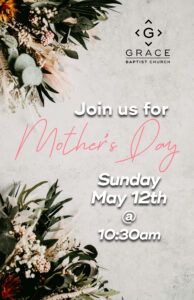“Abortions dropped 65% in Ohio following the overturn of Roe v. Wade.” A casual glance at this title evokes a certain degree of rejoicing among those who believe in the sanctity of life. Unfortunately, the article is written to elicit a different sentiment. The article’s author Jessie Balmert laments the reduction in abortion. Consequently, I must submit that there is a lack of clarity regarding a cause over which there should be rejoicing rather than mourning. Let’s analyze the ambiguous points in this article, then conclude with the only Source of clarity.
Among the statistics in the article, the following is quite arresting: “About 2,470 fewer people obtained abortions in Ohio following those restrictions.”[1] What exactly does the author mean by “fewer people”? Let’s begin with those who can conceive a child. Don’t assume that we have moved passed the argument about gender identity. Culturally, we are at a point where we can no longer assume what writers and speakers mean by the term people. I do not know how Ms. Balmert defines a person who can have an abortion, but scripturally and biologically, only a woman can conceive. Hence, the more accurate statement is that about 2,470 fewer women obtained abortions. Yes, those who hold this binary stance are viewed and accused of being transphobic, but this position is biblical in both the Old and New Testaments of the Bible. In the New Testament, Jesus affirms that His Father’s original creation in Genesis were male and female. The scriptures are not silent on how male and female are described. Women can conceive. Men cannot. Our definitions must be clear before we can sensibly proceed in this argument.
Not only should we be clear on the issue of what it means that less women are getting abortions, but let’s also consider two other details cited in the article. The first one references Ohio’s abortion law. Balmert says, “In mid-September, Ohio’s six-week abortion ban was placed on hold by a Hamilton County Common Pleas judge. That decision restored abortion access in Ohio up to 20 weeks’ gestation or 21 weeks and six days after the last period.” This point about a 20-week-old baby made me wonder. Should we be clear on what a 20-week-old baby is or is doing? Consider the timeline below regarding a baby in development. As you read, ponder what a 20-week gestation means. The Mayo Clinic outlines the second trimester of gestation in the following list:[2]
- Week 13 bones are hardening, urine is forming
- Week 14 red blood cells forming, spleen forming, sex identifiable
- Week 15 scalp and hair patterns are forming
- Week 16 eyes are moving
- Week 17 toenails developing, baby increasingly moving
- Week 18 hearing begins
- Week 19 baby developing protective coating for skin
- Week 20 baby responding to loud noises
For clarity’s sake, when Ohio restores abortions for 20-week-old babies, they are restoring the legalization of the taking of a life, right? To restore this process is to stop the growth, movement, and sensory responses of the baby, not just a fetus. You and I must admit undoubtedly that we are talking about a life – a life that is developing; therefore, restoring abortion on 20-week-old babies is equivalent to the aborting of a life.
Additionally, Balmert cites Dr. Sharon Liner who is a medical director for Planned Parenthood of Southwest, Ohio. Liner laments, “Our patients have been devastated when we have informed them that Senate bill 23 has taken effect and we cannot provide them with the care they need.”[1] What exactly is the care that someone needs? Shouldn’t we clarify what is really a need? What are the criteria that would determine whether something is a genuine need or not? Why is it assumed that having a 20-week-old baby sucked out of a woman’s womb is the need? Sadly our culture has identified and limited that need after the baby is conceived. I would argue that the need is far deeper and greater. More than simply providing care, we need a moral revolution. Should we then not encourage the bridling of lusts and passions before the so-called need is created? How do we find the way to meeting genuine needs?
As a pastor, I would like to call you to the Way of Christ. To you who profess Jesus Christ as your Lord but find yourself caught in the middle, I call you to biblical clarity. Maybe you don’t know what to believe, or maybe you don’t care: you’ve been turned off by the hostility and division of people on both sides of the abortion issue. Maybe you’re confused by professing Christians who stand in open favor of abortion. Not only do Bible-believing Christians need clarity, but so do those who see abortion as a key reason to reject biblical Christianity. Please know that whatever position you hold, clarity is available. It is not a secret, but is found in the gospel.
The gospel is the good news of Jesus Christ, and this news is perspective-correcting. It is that which makes the true God known to us. Jesus Christ lived in time and space. He is not a mythical demi-god or the main character of a well-written Tolkien series. Jesus lived a perfect life in a horribly broken, evil-filled world. This fallenness and spiritual depravity reflect our sinful perspectives that denigrate life and the Giver of life. Thankfully the gospel is God’s declaration to begin reversing, renewing, and restoring all things to Himself.
The gospel is the good news of Jesus Christ, and this news is perspective-correcting.
The gospel begins with God making Himself known to us in Jesus Christ, who claimed to be this God and who entered humanity’s brokenness. Despite His perfection, Jesus lived in pain, sympathized with the hurting, and endured cruel mockings. Jesus rubbed shoulders with the immoral, traitors, adulterers, prostitutes, and hypocrites. Surprisingly many of the people around Jesus did not prevent his affirmation of the biblical Creation account in Matthew 19. Here Jesus confirmed that life was created by God, so it is not farfetched to say that life matters whether in the womb or outside the womb. Why? Because God not only created them male and female, but He gave them a Creational Mandate to be fruitful and multiply. The expectation is that male and female complement each other for this reason. God cares about procreation. Jesus’ words affirm that He believed the Creation account. Listen to Jesus! Jesus is God made known to mankind.
By His perfect life, Jesus clarifies God to mankind: who God is and what God said. If ever anyone deserved to keep living, it was Jesus; but that is not what happened. He was crucified under the rule of Governor Pilate. Jesus never declared His trial an injustice because He was dying as a Substitute. Having lived the life we could not live, He died the death for sin that all mankind deserved. Yes, that includes the sin of devaluation of life. Jesus earned life, but He was paid with death – for us! You will find many faults with the followers of Jesus Christ, but you will never find fault with Jesus in His life nor in His death.
Death is not the end of Jesus’ story. Though the burial site was secured by soldiers, Jesus rose from the dead, walked upon the earth for forty days after his Resurrection, and manifested Himself to many followers, including over 500 eyewitnesses at one time. Based alone on His victory over death, we are given assurance that Jesus is Life. To have Jesus as Lord is to have eternal life. He who conquered death clarifies life. Clarity can come by no other means than through the paradigm of the Gospel of Jesus Christ.
He who conquered death clarifies life. Clarity can come by no other means than through the paradigm of the Gospel of Jesus Christ.
The gospel changes everything! When you turn from sin to Jesus as Lord, you become a new creature. A process of reversal begins immediately after receiving this spiritual, eternal life. Part of this reversal includes sanctification, which is the means whereby the Spirit of God uses the Word of God to make the children of God become more like the Son of God. Thus, desires, perspectives, values, even needs all begin to change. Moreover, clarity increases and life in Christ is magnified.
While our culture continues to debate the issue of abortion, I am asking you to consider a greater argument: Christ Himself. If Jesus really is Lord, then receive Him, follow Him, and become more like Him. True clarity in life can only come by the Source of life. Jesus said, “I am the Resurrection and the Life” (John 11:25). It is no wonder that the gospel is the good news of Jesus. It clarifies what should receive both our rejoicing and our lamenting: rejoicing over the preservation of life and mourning over the taking of life. Indeed, to choose Christ is to choose life and rejoicing over it. I invite you to Christ. I invite you to Life!
True clarity in life can only come by the Source of life.





